"Doing This Is Usually Cheaper Than Using A Coupon": 22 Frugal Hacks For Making Your Grocery Budget Go Further
Though overall inflation is slowing, grocery prices are unfortunately still high. The Washington Post recently reported that groceries now cost 25% more on average than they did just four years ago — but depending on what you tend to buy, you may have noticed even bigger price jumps on your grocery bill.
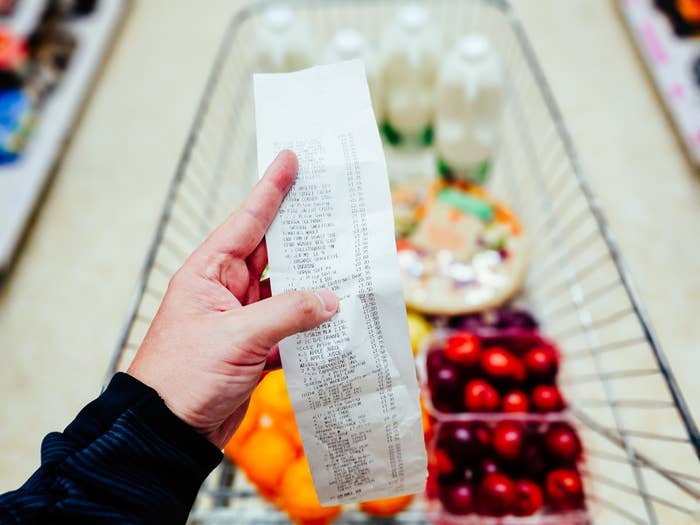
Items like beef, sugar, and juice in particular have gotten more expensive over the past year.
Recently, u/ashamed-eye-no-shit shared that, "Groceries are killing me," and asked frugal people on Reddit to share their best tips for saving money on groceries in 2024. They chimed in with over 2,500 comments. Here are some of the top replies:
1."I spend about $800–$1,000 a month for a family of four. Start with eliminating any beverages. Buy no-frills store brands. Don’t buy premade meals. Use the store app and upload coupons beforehand. Each week, shop the sales and stock up on items that way."
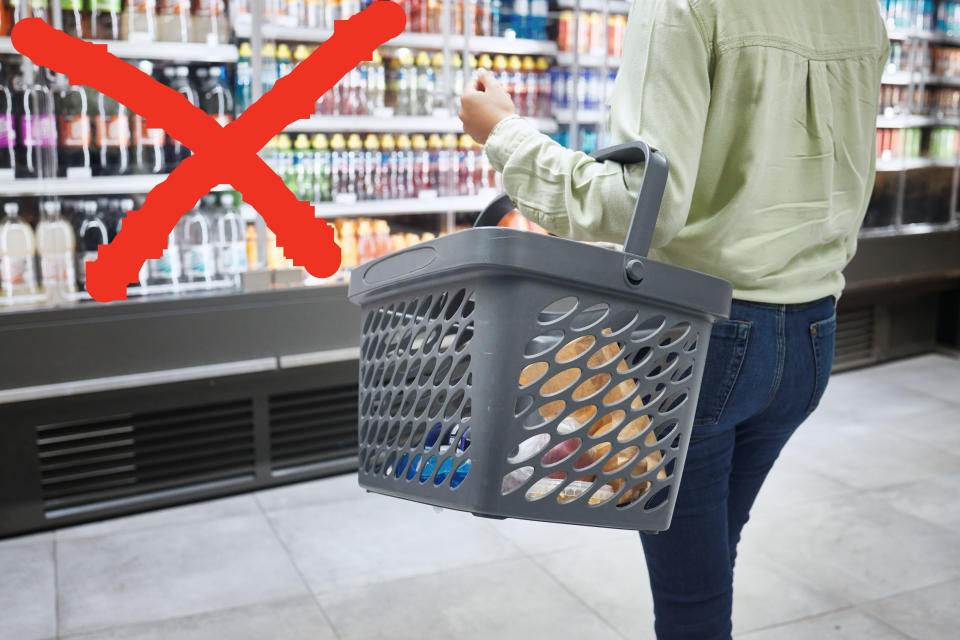
2."If you LOVE a sweet drink, make your own syrups and get a water fizzer thing. I make strawberry syrup out of sugar and strawberries and can make literally hundreds of beverages for, like, $15 max. It lasts for a long time."
3."I’ve found just buying store brand or generic is usually cheaper than even using a coupon."
4."Some months we can get it down to around $600 for a family of three. Many of our staple meals can be made for dollars. We shop with a weekly menu in mind. We factor in days for leftovers, usually two to three nights a week. I then try and group in similar item meals those weeks. If we make Halušky one night, we’ll have some unused cabbage which goes well mixed in a stir fry. Or if I have some chicken broth left over from a meal, it's great to cook quinoa in. It takes work, but it’s worth it."
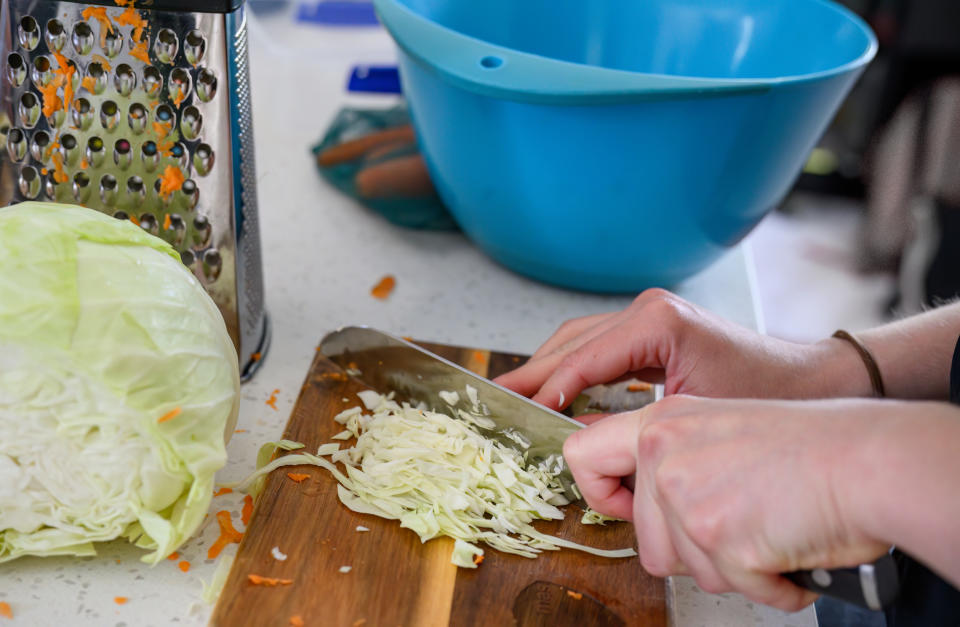
5."Using a hand towel instead of a paper towel for drying off clean things can cut your usage to a fraction. Say, $5 a month. Same with Ziplocs — the volume of these I use for dry goods like open bags of chips, bread, etc. is so high. I just rinse and reuse. Switching from Lysol wipes to a spray bottle is another $5. Buying the larger size of things and portioning yourself is a big one, too. Snack-size bags of nuts? Bag ‘em up yourself for half the price."
6."Be mindful of waste. Use your freezer. One or two portions left of that dinner from two nights ago? Freeze it. Easy, free dinner when you don’t feel like cooking. Look up how to make things stay fresh. Herbs and vegetables are things you should never throw out! Celery and carrots, for example, I almost never use up the 1-lb bags they come in. Properly washing, trimming, and storing them in water that you change out every so often will keep them fresh for weeks. Average household food waste is so high. Most households can save 20% just from that."
7."A great tip is to ONLY allow yourself to shop once a week. This forces you to plan, forces you to make and eat what you planned, and plus, if you run out, well…just make something out of what you’ve got. There is always something there."
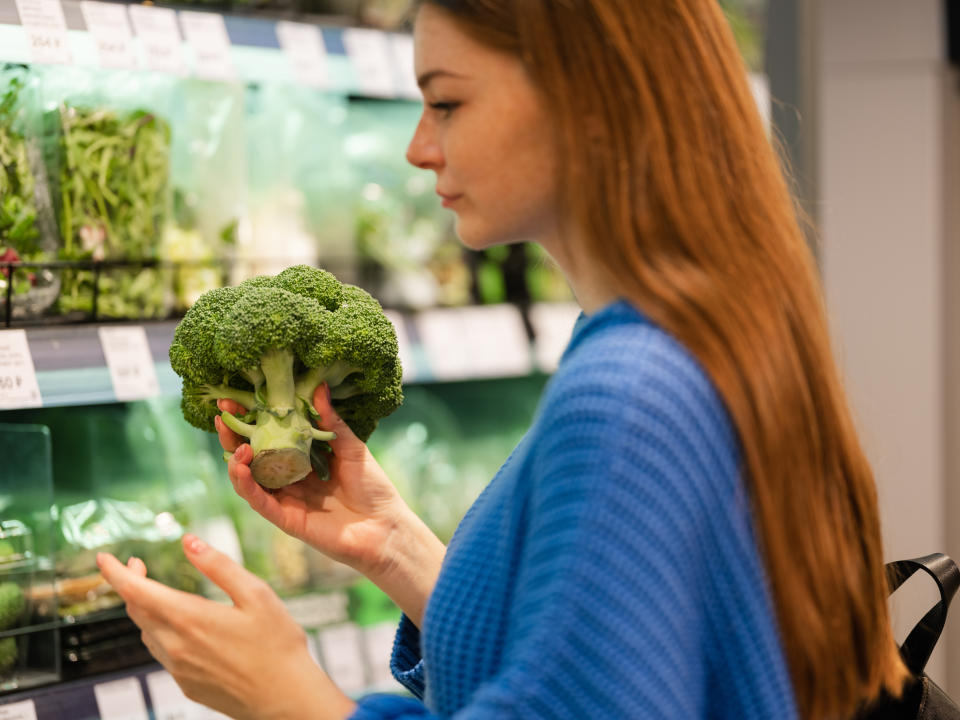
8."Another thing that helps is making purchases on your supermarket website/app. It's kind of a game, you keep adding stuff and make sure it doesn't go above your allocated budget. Here in my city, there are stores where doing a purchase online and doing a curb pickup won't charge you any additional amount. And this is an extra advantage because there will be no temptation to buy extra items if you just go and get everything loaded up in your car!"
9."I have been able to keep my grocery costs down by only buying what is on sale in the weekly ad or for which a digital coupon is available. This is especially handy for produce — this week there were great deals on oranges and apples but not grapes, so that’s what I bought. I can’t always get what I want each week, but if I am patient, then it will eventually go on sale. I also make a lot of stuff from scratch like breads and pizza and cookies, which saves a ton of money."
10."Rice, beans, and lentils mixed into regular meals can make your expensive meal items go further. Try lentils with taco seasoning and have taco night. Also ridiculously cheap!"
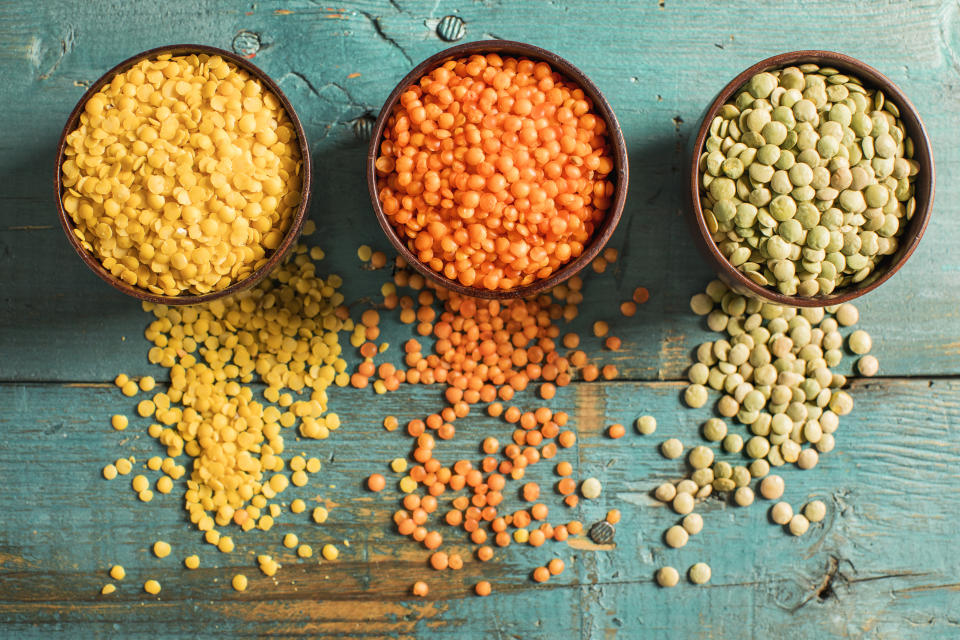
11."You gotta shop around. A lot of people in my area keep shopping at the most expensive stores simply due to habit or convenience. Learn which stores are best for each category. I have a staples store (Aldi), a meat and produce store (local market), a candy store (Dollar Tree), and I'll head to the expensive store if there is a specialty item I need or [if] I want seafood."
12."Go through your receipts and look for patterns — packaged foods, treats, impulse buys, etc. Keep notes of your food waste. Gather all the food clutter in your home and eat your way through it. By the end of these steps, you'll know exactly what your non-frugal food habits are."
13."I do the cash in an envelope system and make it work."
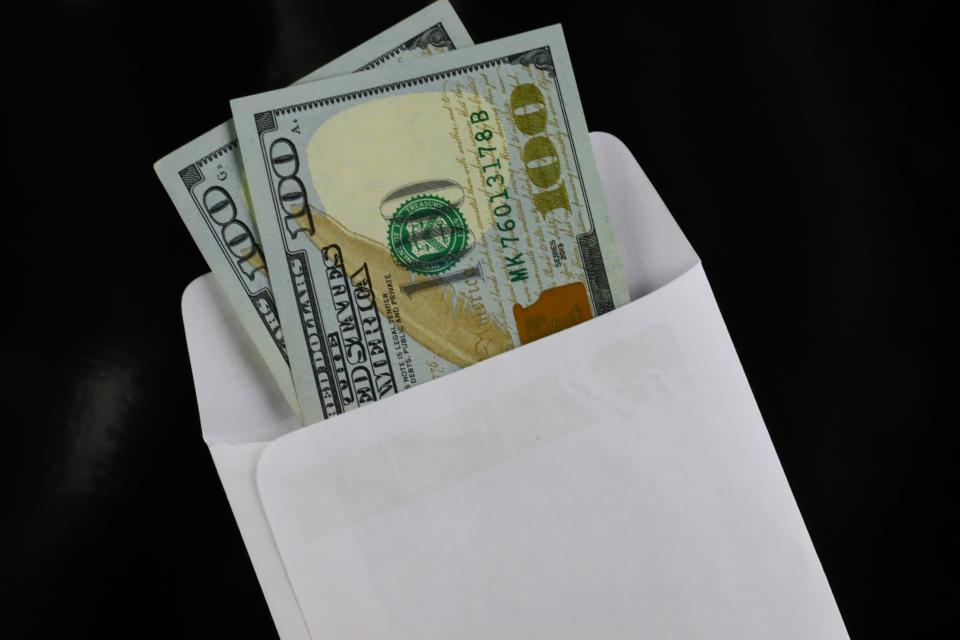
The envelope method is a popular budgeting style where you put cash for each budget category into an envelope each month, then only spend from that envelope. You can learn more here.
14."The Instant Pot is a super easy way to make healthy food easily and on a budget. I make a huge pot of soup or sweet potato and black bean chili on Sundays, and when we are in a hurry or too lazy to cook dinner during the week, we have that. I have found some amazing recipes on NY Times Cooking."
15."I refuse to buy name brands. I compare the price per ounce on everything (easy to do on Walmart's website). I don't buy expensive cuts of meat. We eat a lot of meatless dishes. We eat leftovers. We eat breakfast for supper. From time to time when I'm motivated, I meal prep a couple of meals over the weekend to save time. Sometimes I make a double batch and freeze half (tonight we're having lentil chili from the freezer that I made three weeks ago)."
16."I use digital coupons. I also click on the store's reward section and click the reward point offers to get 4x points, etc. on things I buy, and they add up. Like, I have $20 off my next purchase waiting for me from points I earned recently. And shopping mainly sale items, I tend to save $30–$60 on every purchase."
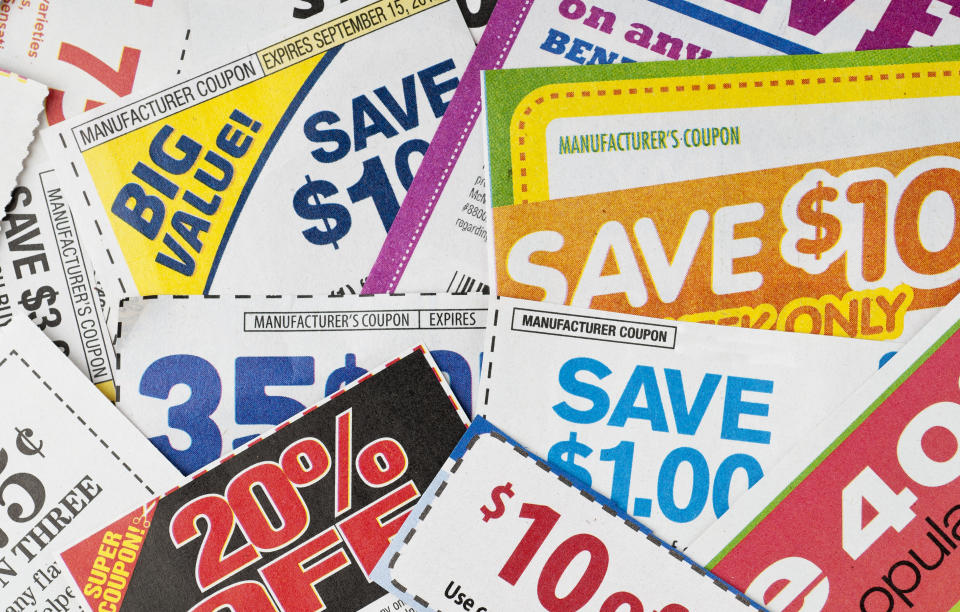
17."I use the Ibotta app for things I already normally buy, and once I reach $20 on the app, I can transfer it to my bank account."
18."Buy minimally processed food. I cook all my beans from dry. I bake my own bread (it’s not great, but it’s not $7). I rely a lot on other whole grains like rice and barley which are a lot cheaper. I only buy veggies from independent grocery stores which are actually competitively priced. I buy what’s in season. No arugula in the winter. No radicchio in the summer."
19."If you're buying a lot of organic produce, that tends to be a lot more expensive than regular produce."
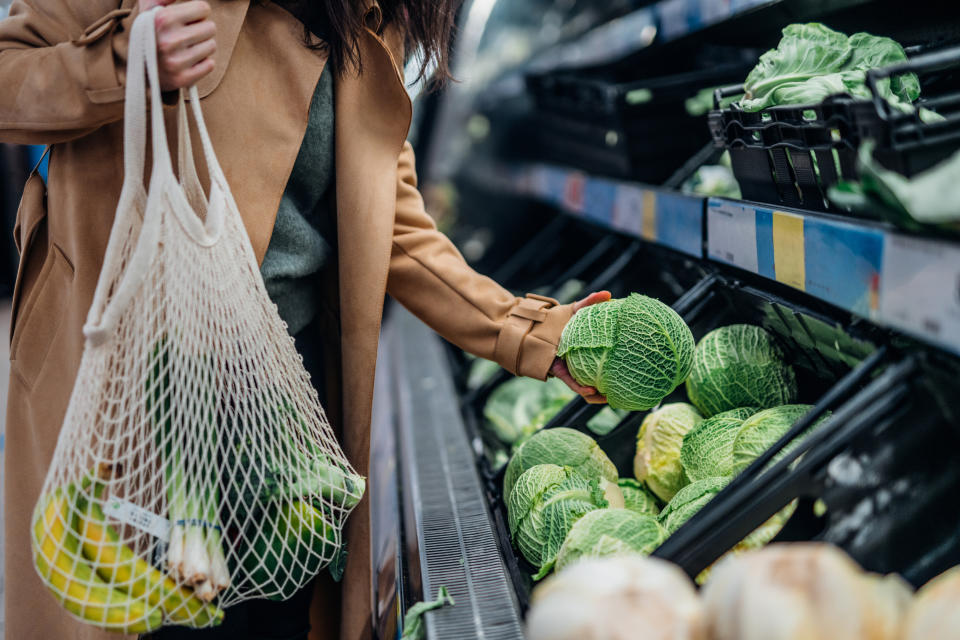
20."Whenever I grocery shop, I ask for a receipt, and I evaluate the five highest-priced items. I ask myself whether it was necessary and worth it. Usually, those higher priced items are proteins (meat) or a gluten-free food. Also, consider that sometimes buying the bigger thing is cheaper."
21."Look for staples in cheaper places. For instance, buy rice in 25-kg bags at an Asian market — way cheaper than the grocery stores. The key to saving in the modern capitalistic market is to have the willingness to walk away, and to do that you need to be flexible. If you just have to have a specific item a specific way on a specific day, you will pay dearly for it."
22.And finally: "Our local food bank has been extremely helpful when our budget has been tight. They not only provide food, but they have diapers and Pull-Ups for my kids as well as free menstrual products and a large selection of books for both kids and adults. At our food bank, we are provided with a cart and allowed to go 'shopping'; fresh fruits and vegetables are always available, as are eggs, breads, rolls, biscuits, milk, some type of meat (ground beef, chicken, etc.), frozen foods (usually frozen pizzas or different types of fish), and then random stuff in a cooler that you can pick items out of, as well as baked goods (pies, donuts, cookies, cakes, etc.)."

"This week, they had bouquets of flowers they were giving out to each family; it may sound silly, but being able to brighten my kitchen up with flowers that I normally wouldn’t have been able to purchase has been very mood-boosting."
Do you have any tips or tricks that have helped you save money on groceries? Tell us what's working for you in the comments!


